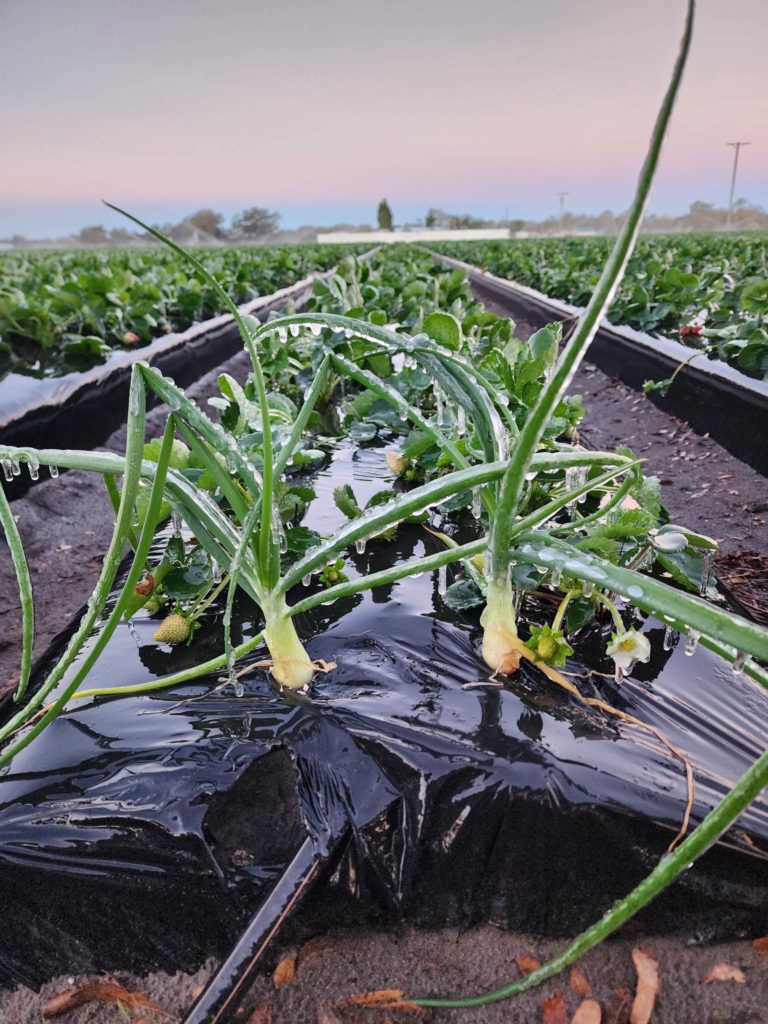By Clint Thompson
Specialty crop producers can usually stomach one day of sub-freezing temperatures. But four days? That was not the ideal scenario for growers across the Southeast this past weekend. It was disastrous for vegetable farmers, citrus growers and potentially strawberry producers.

Prolonged temperatures in 20s over parts of the region, including South Georgia and North Florida, have been challenging for growers.
“The prolonged freezing temperatures that normally go a day or two without getting above freezing, that is where we see the most damage,” said Chris Butts, executive vice president of the Georgia Fruit and Vegetable Growers Association. “I think the only good news that came out of this was the wind might have kept things from getting even colder or doing even more damage. We were grateful to see that wind stay up on Friday and Saturday and even into Sunday.
“That at least keeps the air moving and at least keeps that cold from settling down so much. We were grateful to see that.”
Florida strawberry producer Dustin Grooms, with Fancy Farms in Plant City, Florida, opted not to apply water both cold nights, mostly for fears of exacerbating Neopestalotiopsis Fruit Rot disease.
“We felt like it was going to make that worse rather than saving a few blooms,” Grooms said. “We felt like it was going to go bad anyhow. Let’s just try to mitigate that problem by not putting the water there for sure.
“You don’t like to see (the cold temperatures) down there for long. At 3 o’clock in the morning one night, we could have cranked up and we’re watching it, wondering how long these plants could sustain these levels. We rolled the dice and going around on the open blooms we got lucky, I definitely say, because it’s hard to find dead blooms. There’s a handful around. There are definitely some tender ones deep down in the crown of the plant. We won’t know the full extent for another couple of weeks.”
Even growers in southern Florida had to manage their crop amid temperatures colder than normal.
“It’s unusual that we’d have four days in a row that are this cold,” said Gene McAvoy, University of Florida/IFAS regional vegetable Extension agent IV emeritus. “Usually when we get cold, it’s a day or two and then it’s back up in the 70s. Plus, it’s been really cloudy. We hadn’t had a bit of sunshine in four days. If it was sunny, we probably would have frozen, too.”









